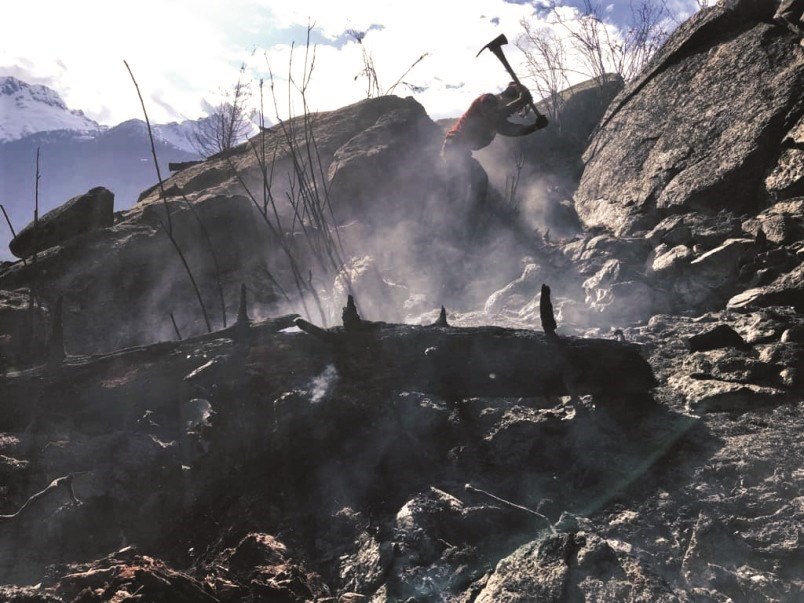A fuel management project carried out on Whistler Blackcomb’s tenure by the provincial Mountain Resort Branch is wrapping up this month, and residents can expect to see smoke as forest debris is burned.
The burning will start Oct. 6 and be completed throughout the month of October, according to a provincial release.
“The material will be piled in piles no larger than two metres tall and three metres wide and will be burned only if conditions permit. All pile burning will follow the Ministry of Environment’s Open Smoke regulation to reduce smoke impacts,” the release said.
“The project is being carried out in the general location of the Peak 2 Peak towers, the Crystal Ridge and Excelerator chairlift bases, and an area adjacent to parking lot P6.”
The debris burning marks the last step in the project started last fall, which included understory thinning, pruning and removal of surface fuels.
“Crews also removed heavy undergrowth and lower branches on trees and remove immature young trees to widen spacing between the trees within a 50-metre radius of the tower. Older mature trees were retained to provide shade to the ground and inhibit regrowth of the understory,” the release said, adding that the area is recognized as a high wildfire risk area.
“Removing excess fuel will reduce wildfire occurrence, severity and spread, prevent wildfire spreading into the tops of trees, and permit better access for crews responding to wildfires in this area. The treatment will reduce the risk of wildfire to the community and provide a safer evacuation for the public if needed and will mitigate the risk to the area from wildfires.”
Meanwhile, the Resort Municipality of Whistler is seeking feedback on its Wildfire Mitigation Program.
A new online survey—which takes about five minutes to complete—is live at whistler.ca/wildfire. The survey closes at 12 p.m. on Oct. 18.
Feedback from the survey will help shape the RMOW’s communications strategies related to the three pillars of its wildfire mitigation efforts: fuel thinning, FireSmart and public education, and ultimately the updated Community Wildfire Resiliency Plan.
“As we see our summers become increasingly hotter, longer and drier, our risk of large-scale wildfire intensifies,” said Mayor Jack Crompton in a release.
“Wildfire mitigation is a collective responsibility that requires the joint efforts of the municipality, residents, businesses and our guests. This survey will help us improve our communications efforts so the importance of the Wildfire Mitigation Program is widely understood, and the public will understand their role in reducing our risk to wildfire.”




